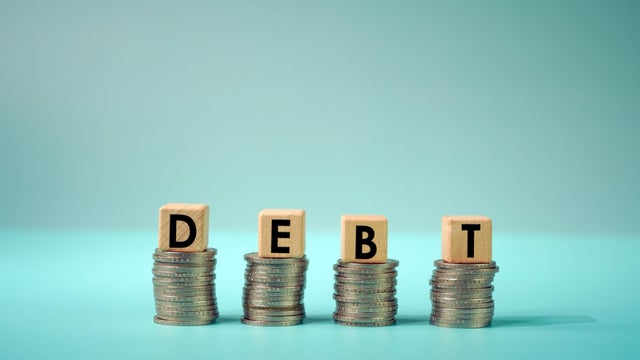How to consolidate credit card debt without hurting your credit
Credit card debt remains one of the most common financial stressors for Americans. According to recent data, the total credit card debt nationwide has surpassed $1.21 trillion, the latest record high, and the average cardholder carries nearly $8,000 in credit card debt currently. With credit card interest rates hovering around 22% on average, these types of balances can grow quickly if left unchecked, especially for those juggling multiple card balances, each with its own payment due date and interest rate.
The pressure that comes with carrying balances on multiple cards can spark a search for ways to consolidate debt, but what's tricky is that not all debt consolidation methods are created equal. Some approaches, like opening a new credit card for a balance transfer, can temporarily ding your credit score, while others can help you manage payments without much (or any) collateral credit score damage.
For those with multiple credit card balances, knowing which debt consolidation paths are safe for your credit score is crucial. After all, understanding your options can mean the difference between a strategic move and a costly credit misstep.
Find out how to get help with your high-rate credit card debt now.
How to consolidate credit card debt without hurting your credit
Consolidating credit card debt doesn't have to come with the fear of a credit score drop, but you'll need to choose strategies that either report positively to credit bureaus or don't trigger new hard inquiries. Here's a closer look at some of the safer routes:
Enroll in a debt management program
A debt management program facilitated through a credit counseling agency can help you simplify your monthly payments and minimize negative marks on your credit. When you enroll in this type of program, a credit counselor will help you create a plan to pay the agency a single monthly payment that gets passed on to your creditors, while potentially lowering your interest rates through negotiations with your creditors.
This approach doesn't require you to take on new debt and is reported differently compared to opening new loans or new credit cards. In the short term, your credit utilization rate will increase in a debt management plan because the credit accounts you enroll with the counselor will be closed. But as you pay down your debt over time, your utilization will decrease, which can help improve your credit score.
A debt management plan usually takes three to five years to complete. During this time, you may see your credit score improve, as any previously missed payments get older and you add new positive payment history to your credit report.
Explore your debt relief options and start tackling your high-rate debt today.
Use a personal loan for consolidation
Taking out a personal loan to pay off credit card debt can be another smart strategy to consider, particularly if you qualify for a lower interest rate than what you have with your cards. Personal loans typically offer fixed rates and predictable monthly payments, making budgeting easier. And, since personal loans are installment debt rather than revolving credit, using one for this purpose can actually improve your credit mix.
While applying for a personal loan will usually trigger a hard inquiry, the beauty of this approach is that once you pay off your credit cards with the loan proceeds, your credit utilization ratio drops dramatically, which can boost your credit score quickly. You'll just need to resist the temptation to charge up those newly cleared cards again, which will damage your score.
Transfer balances to a low-rate or 0% APR credit card
One of the most popular debt consolidation methods involves transferring your high-rate balances to a new credit card with a lower rate or a promotional 0% APR period. Many cards offer 12 to 21 months of 0% interest on balance transfers, giving you breathing room to pay down the principal without accumulating a hefty amount of additional interest.
You can protect your credit with this approach by not closing your old cards after transferring the balances. You'll want to keep them open with zero balances to maintain your available credit and preserve your credit history length instead. Just be disciplined enough not to rack up new debt on those empty cards — and try to keep the utilization low on the balance transfer card, too.
Leverage your home equity to consolidate debt
If you own a home with sufficient equity, which many homeowners do right now, you might consider using a home equity loan or home equity line of credit (HELOC) to consolidate your credit card debt. These options typically offer much lower interest rates than credit cards because your home secures the debt.
However, this strategy requires extreme caution since you're putting your home at risk. Only consider this option if you're confident in your ability to make payments and have addressed the spending habits that led to the debt in the first place. Done correctly, though, a HELOC or home equity loan can consolidate debt without a negative credit impact, as long as payments are made on time.
The bottom line
Consolidating your credit card debt doesn't have to come at the expense of your credit score. By exploring structured options like debt management programs, personal loans, strategic balance transfers, home equity loans or HELOCs, you may find the right path to combine multiple debts into a single, manageable payment plan without damaging your credit.
Remember, though, that consolidation is just the first step. Lasting financial health requires you to also address the underlying spending habits and budgeting issues that led to the debt in the first place. The goal isn't just to consolidate your debt, after all. It's to break free from the cycle entirely while building a stronger credit profile for your future financial endeavors.
